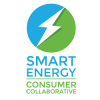Dive Brief:
- An Austin, Texas, homeowner's filing of an Information Letter Request with the Internal Revenue Service (IRS) has led the agency to "formally review [Value of Solar tariffs] and their impact on taxpayers," according to a release put out by the Alliance for Solar Choice, a net metering advocacy group.
- The case will allow the agency to rule if Value of Solar tariffs (VOST) are taxable income, as net energy metering (NEM) advocates argue.
- If VOST payments are ruled taxable, homeowners using solar could see their property taxes rise. A 2013 legal brief also raises concerns that a VOST could jeopardize homeowners' ability to claim the 30% federal Investment Tax Credit on solar equipment.
Dive Insight:
The solar industry's internal war, which pits net metering against VOSTs, may be decided by the IRS.
NEM was one of the earliest methods of supporting solar growth and the retail rate was chosen as a convenience. The VOST methodology was developed to be a more precise valuation. 43 states have adopted NEM, but the city of Austin, Texas, and Minnesota have implemented VOST. Karl Rábago, co-creator of the first value of solar tariff, claims neither VOST nor NEM constitute taxable income, but believes VOST is a clearer calculation of solar's costs and benefits.
The 2013 legal brief questioning the VOST model was written by Sean Shimamoto and Emily Lam, partners at the firm Skadden, Arps, Slate, Meagher & Flom. “The proceeds from the taxpayer's sale of electricity to the utility therefore likely constitute gross income,” they concluded. The opinion carries some weight, as Skadden is widely considered one of the leading tax law firms in the country.
Rábago and VOST advocates argue that payments made under their model differ from NEM only in language. VOST, like NEM, is "a netting process that happens on the customer side of the transaction," he told Greentech Media. "It's not a sale." Rábago said that in drafting Austin's VOST model, he was careful to use the term "credits" and never "sales" or "cash," which could classify VOST payments as taxable income.
Rábago claims TASC's decision to invite the IRS to rule on the matter was shortsighted. "This is inviting the IRS to rule with some precision that sales incidental to use are all sales, which we've kind of gotten away with with NEM," he said.
A lawyer close to the decision told Greentech Media that he expects NEM advocates to win out in the end. "The Skadden memo is the best thinking we have on this — and it appears the VOST income will be taxable," he said.
"They're likely to rule that it's income," another attorney concluded.












